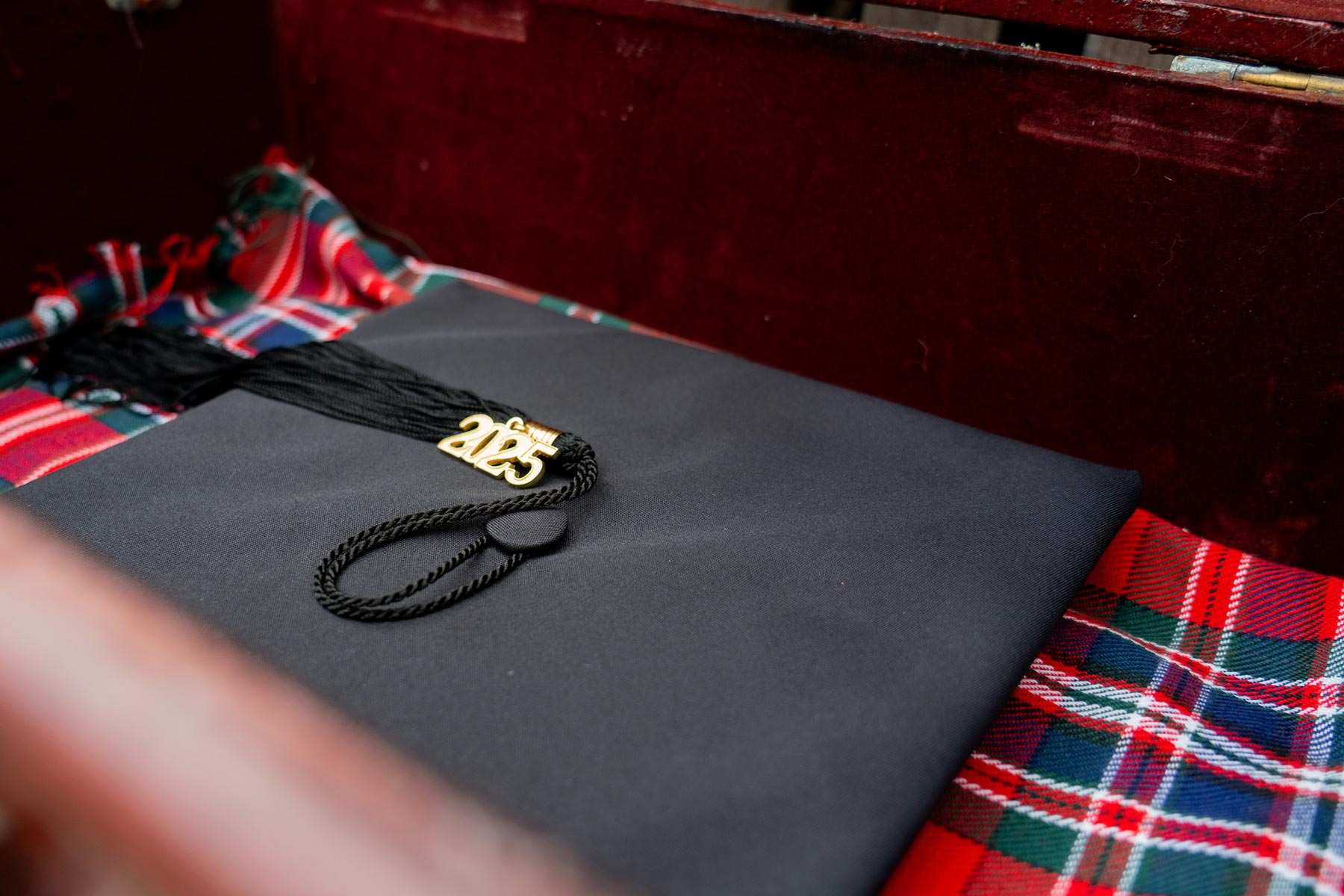Radford University
Radford News

They Found Their Place
New graduates begin the next journey
Join us as we celebrate the Class of 2025. Where every graduate leaves with a story, a purpose and path that is all their own.

Latest News
-
Jeffery Aspelmeier selected to lead Radford University’s College of Humanities and Behavioral Sciences as dean
December 21, 2025
Radford University has selected Jeffery Aspelmeier, Ph.D., to serve as dean of the College of Humanities and Behavioral Sciences (CHBS), following a national search conducted during the fall 2025 semester.

-
George Zama ’25 reflects on Radford, resilience and giving back
December 18, 2025
George Zama ’25 has always believed that success means little unless it elevates others.

-
Radford University, NRCC announce shared student advisor position to improve transfer student success through Tartan Transfer
December 18, 2025
New River Community College (NRCC) and Radford University have announced a new collaboration: a shared student advisor position designed to strengthen transfer pathways and improve student success.

-
Radford confers 580 student degrees during 2025 Winter Commencement
December 16, 2025
At last week’s ceremonies, keynote speaker Lara Ramsey ’90, M.S. ’92, president and CEO of The National Bank of Blacksburg, challenged new degree holders to continue seeking knowledge. “Your diploma is not the end of your education,” Ramsey said. “It is the beginning of a lifetime of learning.” Commencement exercises were held Dec. 11-13.

-
Highlander Highlights: Week of Dec. 8, 2025
December 12, 2025
Highlander Highlights shares with readers some of the extraordinary research and accomplishments happening on and off campus through the tireless work and curiosity of our students, staff and faculty.

-
Board of Visitors approves six-year strategic plan, ‘empowering brighter futures and building stronger communities’
December 12, 2025
The strategic plan will guide Radford University for the next six years.

-
Find your place, take it with you: celebrating the Radford University class of winter 2025
December 10, 2025
Get to know seven graduates of the Class of Winter 2025 and the moments that made their Radford journey unforgettable.

-
Math professor pens Radford University’s new spirit song
December 8, 2025
On Wednesday night inside the Dedmon Center, the halftime music at the Radford men’s basketball game sounded a little different.
